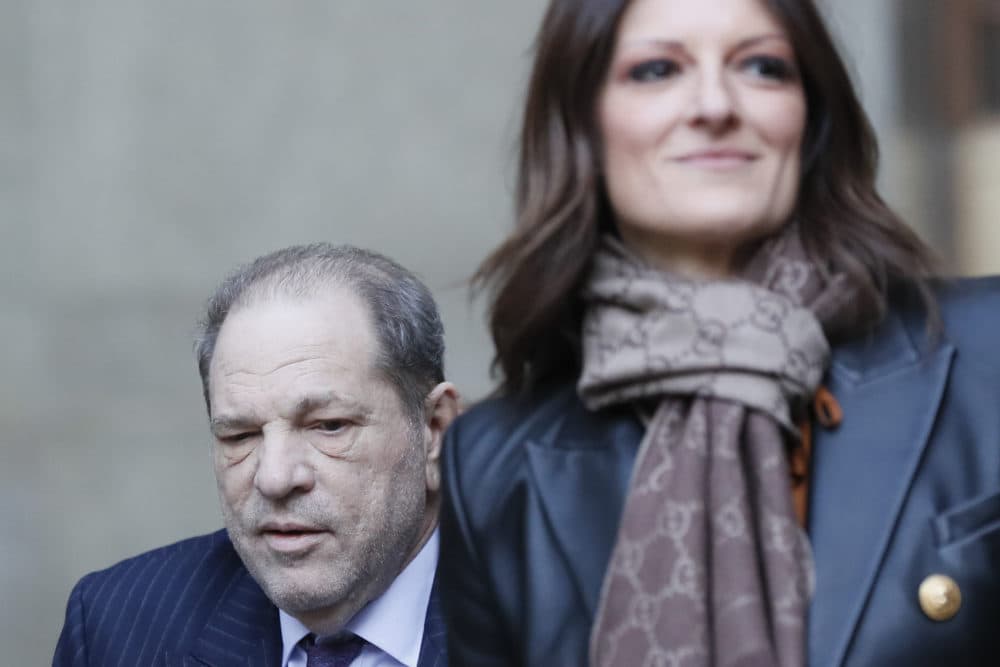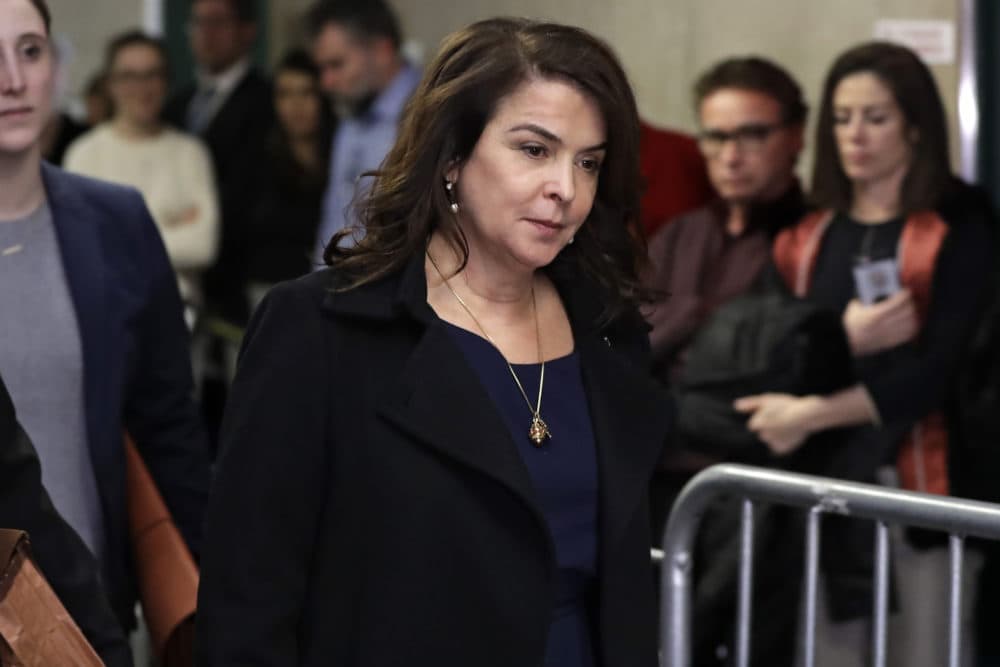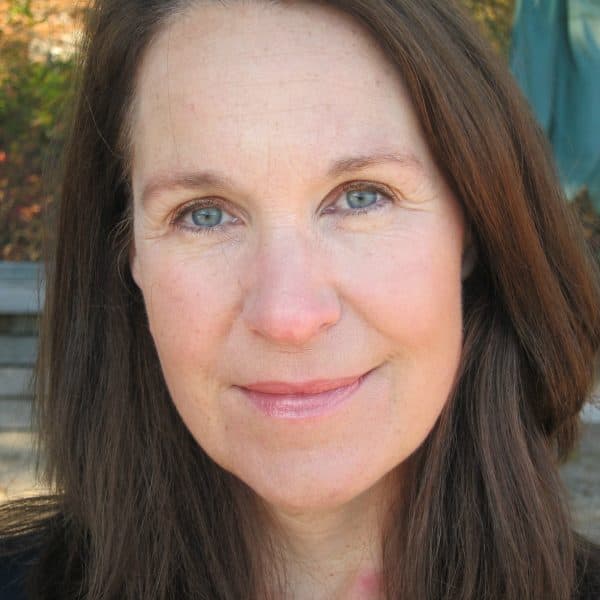Advertisement
Commentary
The Weinstein Trial Is A Test Of Our Justice System

Editor's note: This piece published the morning of February 24, the day the verdict came down. Harvey Weinstein was found guilty of rape and sexual assault, but was acquitted of predatory sexual assault. Read Leigh Gilmore's real-time reaction to the verdict here.
When the jury in Harvey Weinstein’s trial sent a note to the judge last Friday afternoon, suggesting they were unable to reach a unanimous verdict on all charges, Justice James M. Burke instructed them to keep deliberating, before dismissing them for the weekend. Deliberations resume today and a verdict could come soon.
Weinstein is charged with five counts of sexual assault and rape. The jury’s note suggests that they have reached a verdict on two charges of rape and one count of criminal sexual act, but are still short of unanimity on the two most serious charges of predatory sexual assault, which carry a life sentence.
In order to prove predatory sexual assault, the prosecution must demonstrate that Weinstein committed more than one criminal sex act. Annabella Sciorra, whose rape allegation from the 1990s is disallowed by a statute of limitations (and not because the evidence doesn’t support a charge), testified to link the contemporary claims to a prior rape, justifying the predatory sexual assault charge. If Weinstein is not convicted, it will be because the jury could not unanimously agree on the pattern of predatory sexual assault.
People are asking whether the verdict in Weinstein’s trial is a referendum on #MeToo. And in some regard that’s a reasonable question, given that he is synonymous with the beginning of the #MeToo movement in October 2017.
But Justice Burke cautioned, “This trial is not a referendum on #MeToo or sexual harassment.” And he is right. The verdict is really about whether the law is up to the task of addressing the prevalence of sexual violence. To date, it has not been.

The vast majority of sexual assaults and rapes go unreported and the few cases that are brought rarely result in convictions. Men convicted of sexual assault and rape often receive light sentences and are painted sympathetically, while victims are humiliated in cross examination.
The current trial is a stress test of our system of justice.
Weinstein’s attorney, Donna Rotunno, has been arguing that the sex between her client and his victims was consensual. Rotunno wants the jury to believe that women cannot know or describe what Weinstein did to them accurately. She also wants something more, and much worse — she wants the jury to say that the law entitles Weinstein to re-label sexual assault and rape as consensual sex; and that because he wants this, demands this, the jury should agree with him.
The verdict is really about whether the law is up to the task of addressing the prevalence of sexual violence. To date, it has not been.
The Weinstein case is but one single and telling example of how one man sexually assaulted more than 100 women over decades. More than 100. Let that number sink in.
Weinstein embodies the assertion of masculine sexual entitlement. He acknowledges no limits on his right to women’s bodies. He conditioned employment on his assertion of his sexual entitlement and he retaliated when women denied him. He still denies responsibility for his actions, asserting instead that his sexual aggression and violence were met with his victims’ consent.
And he had a lot of help.
Boards of directors at Miramax and the Weinstein group knew about his behavior, because they authorized settlements with his victims.
Attorneys knew, because they pressured women to sign nondisclosure agreements.
Weinstein coordinated a network of people to deliver him victims, and he pressed spies into service to threaten and silence women so he could continue serial, predatory sexual assault.
And when some of those women, including the actress Rose McGowan, refused to be silenced, he used tactics to amplify the criminal justice system’s notorious bias against survivors of sexual abuse.
Advertisement
The #MeToo movement has done an enormous amount to change the conversation about sexual violence. It’s exposed the prevalence of abuse in the lives of girls, women and survivors of all genders. And it’s cast a light on the many systems that exist to protect abusers.
But #MeToo has not resulted in an overhaul of how those who bring forward allegations of sexual violence are treated by police, district attorneys, criminal defense attorneys, or the media. Those changes require a more thorough exposure and dismantling of the presumption that abusers can label rape as consensual sex, or sexual harassment as “jokes that fell flat.” And this work must go on in the courts, as well as the court of public opinion, and in workplaces, religious organization and schools.
But #MeToo has not resulted in an overhaul of how those who bring forward allegations of sexual violence are treated by police ...
If Weinstein is convicted, it will show that our justice system passed the stress test this time. It will also show how punishingly high the bar is set to hold one man accountable for decades of abuse against hundreds of women. (The specifics of this case show that he said/she said still requires so many survivors to shift the balance of credibility.) With a guilty verdict the jury would send a message that they do not believe Weinstein is free to rename the rape he committed as sex his victims consented to.
A not guilty verdict would be evidence that an abuser’s defense can still reliably substitute a false, victim-blaming stereotype that disregards women’s testimony.
If Donna Rotunno convinces the jury with her retrograde defense, that women — not Weinstein — are responsible for his sexual assaults of them, we’ll have our verdict.
Not on #MeToo, but on the continued failure of how our legal system addresses sexual violence.
Will the law fail victims of sexual assault or protect them? That’s the test.
